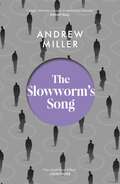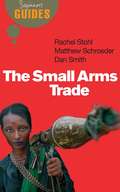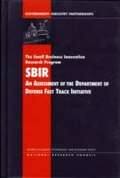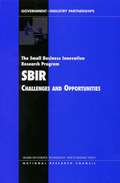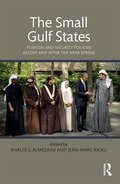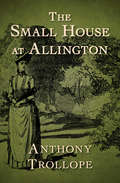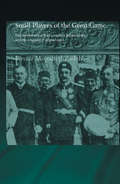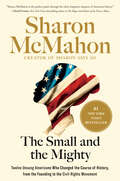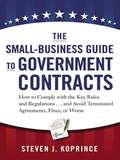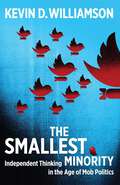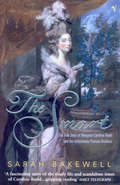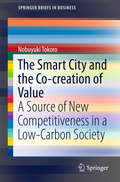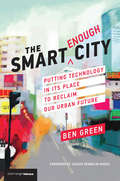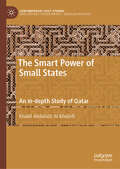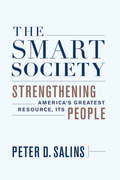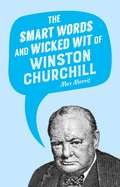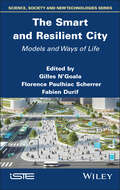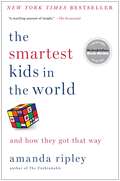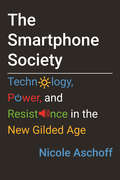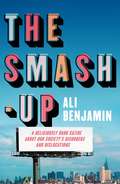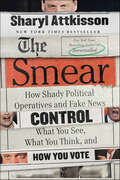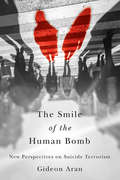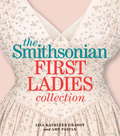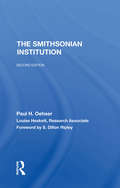- Table View
- List View
The Slowworm's Song
by Andrew Miller***Pre-order Andrew Miller's new novel THE LAND IN WINTER now - coming October 2024***'ANDREW MILLER'S WRITING IS A SOURCE OF WONDER AND DELIGHT' Hilary Mantel 'ONE OF OUR MOST SKILFUL CHRONICLERS OF THE HUMAN HEART AND MIND' Sunday Times'Sublime' Independent 'Masterful' Sunday Times 'Beautiful' Spectator A profound and tender tale of guilt, the search for atonement and the hard, uncertain work of loving from the critically acclaimed author of PureAn ex-soldier and recovering alcoholic living quietly in Somerset, Stephen Rose has just begun to form a bond with Maggie, the daughter he barely knows, when he receives a summons - to an inquiry in Belfast about an incident during the Troubles, which he hoped he had long outdistanced. Now, to testify about it could wreck his fragile relationship with Maggie. And if he loses her, he loses everything. He decides instead to write her an account of his life - a confession, a defence, a love letter. Also a means of buying time. But as time runs out, the day comes when he must face again what happened in that distant summer of 1982. PRAISE FOR ANDREW MILLER 'Unique, visionary, a master at unmasking humanity' Sarah Hall 'A writer of very rare and outstanding gifts' Independent on Sunday 'A highly intelligent writer, both exciting and contemplative' The Times 'A wonderful storyteller' Spectator
The Small Arms Trade: A Beginner's Guide (Beginner's Guides)
by Dan Smith Rachel Stohl Matthew SchroederThis enlightening guide reveals the disturbing reality within the murky underworld of international arms trading.
The Small Business Innovation Research Program: AN ASSESSMENT OF THE DEPARTMENT OF DEFENSE FAST TRACK INITIATIVE
by National Research Council Technology Board On Science Economic PolicyIn 1992, Congress for the first time explicitly directed the federal agencies making SBIR grants to use commercial potential as a criterion for granting SBIR awards. In response, the Department of Defense developed the SBIR Fast Track initiative, which provides expedited decision-making for SBIR awards to companies that have commitments from outside vendors. To verify the effectiveness of this initiative, the DoD asked the STEP Board to assess the operation of Fast Track. This volume of original field research includes case studies comparing Fast Track and non-Fast Track firms, a large survey of SBIR awardees, and statistical analyses of the impact of regular SBIR and Fast Track awards. Collectively, the commissioned papers and the findings and recommendations represent a significant contribution to our understanding of the SBIR program.
The Small Business Innovation Research Program: Challenges and Opportunities
by National Research Council Staff Technology Charles W. Wessner Board on Science Education Staff Economic Policy StaffSmall businesses have increasingly been recognized as a source of innovation, and one way in which the Federal government encourages such innovation is through the Small Business Innovation Research program. SBIR sets aside 2.5 percent of federal agencies' R&D budgets for R&D grants to small business. Although the program's budget was nearly $1.2 billion in 1998, SBIR has been subject to relatively little outside review. As part of the STEP's ongoing project on Government-Industry Partnerships, the Board convened policymakers, academic researchers, and representatives from small business to discuss the program's history and rationale, review existing research, and identify areas for further research and program improvements.
The Small Gulf States: Foreign and Security Policies before and after the Arab Spring
by Jean-Marc Rickli Khalid S. AlmezainiSmall states are often believed to have been resigned to the margins of international politics. However, the recent increase in the number of small states has increased their influence and forced the international community to incorporate some of them into the global governance system. This is particularly evident in the Middle East where small Gulf states have played an important role in the changing dynamics of the region in the last decade. The Small Gulf States analyses the evolution of these states’ foreign and security policies since the Arab Spring. With particular focus on Oman, Qatar and the United Arab Emirates, it explores how these states have been successful in not only guaranteeing their survival, but also in increasing their influence in the region. It then discusses the security dilemmas small states face, and suggests a multitude of foreign and security policy options, ranging from autonomy to influence, in order to deal with this. The book also looks at the influence of regional and international actors on the policies of these countries. It concludes with a discussion of the peculiarities and contributions of the Gulf states for the study of small states’ foreign and security policies in general. Providing a comprehensive and up-to-date analysis of the unique foreign and security policies of the states of the Gulf Cooperation Council (GCC) before and after the Arab Spring, this book will be a valuable resource for students and scholars of Middle East studies, foreign policy and international relations.
The Small House at Allington (The Chronicles of Barsetshire #5)
by Anthony TrollopeThe classic tale of romance and betrayal from a distinguished master of English satire. The fifth novel in the Chronicles of Barsetshire epitomizes the wit, attention to detail, and thoughtful analysis of class and gender issues that made Anthony Trollope one of Victorian England&’s most beloved novelists. The Small House at Allington moves away from the earlier books&’ overt ecclesiastical concerns to focus on a small dower house on the edge of Christopher Dale&’s estate—Dale being the unlikely Squire of Allington. Dale has made the dower house available to his widowed sister-in-law and her daughters, Bell and Lily, and the novel mainly follows the romantic exploits of the sisters. Lily is engaged to the rising Adolphus Crosbie, who is smitten with Lady Alexandrina de Courcy. Meanwhile, John Eames has pined for Lily for years, but the young clerk seems helpless to wrench her away from her duplicitous beau. In trademark Trollope fashion, The Small House at Allington twists through a number of minor characters and subplots before reaching its satisfying conclusion. Trollope&’s uncanny ability to derive the universal from the specific has kept his work evergreen well into the twenty-first century, with class struggles and romantic miscues just as relatable today as they were one hundred years ago. This ebook has been professionally proofread to ensure accuracy and readability on all devices.
The Small Players of the Great Game: The Settlement of Iran's Eastern Borderlands and the Creation of Afghanistan (Routledge Islamic Studies Series)
by Pirouz Mojtahed-ZadehThis book deals with the 19th century Anglo-Russian Great Game played out on the territorial chessboard of eastern and north-eastern parts of the waning Persian empire. The Great Game itself has been written about extensively, but never from a Persian angle and from the point of view of the local players in that game. Looking at the territorial consequences of the Great Game for the local players is a unique approach, which deserves a special place in the studies of history, geography, politics and geopolitics of the age of modernity.
The Small and the Mighty: Twelve Unsung Americans Who Changed the Course of History, From the Founding to the Civil Rights Movement
by Sharon McMahonA #1 NEW YORK TIMES BESTSELLERFrom America&’s favorite government teacher, a &“fascinating and fun&” (Adam Grant) portrait of twelve ordinary Americans whose courage formed the character of our country.In The Small and the Mighty, Sharon McMahon proves that the most remarkable Americans are often ordinary people who didn&’t make it into the textbooks. Not the presidents, but the telephone operators. Not the aristocrats, but the schoolteachers. Through meticulous research, she discovers history&’s unsung characters and brings their rich, riveting stories to light for the first time. You&’ll meet a woman astride a white horse riding down Pennsylvania Ave, a young boy detained at a Japanese incarceration camp, a formerly enslaved woman on a mission to reunite with her daughter, a poet on a train, and a teacher who learns to work with her enemies. More than one thing is bombed, and multiple people surprisingly become rich. Some rich with money, and some wealthy with things that matter more. This is a book about what really made America – and Americans – great. McMahon&’s cast of improbable champions will become familiar friends, lighting the path we journey in our quest to make the world more just, peaceful, good, and free.
The Small-Business Guide to Government Contracts: How to Comply with the Key Rules and Regulations . . . and Avoid Terminated Agreements, Fines, or Worse
by Steven KoprinceGovernment law attorney Steven J. Koprince teaches you to concentrate on the crucial but complex Federal Acquisition Regulation (FAR) and other rules required for keeping contracts alive and avoiding penalties.Each year, the federal government awards billions of dollars in small-business contracts. The Small-Business Guide to Government Contracts puts a wealth of specialized legal counsel at readers&’ fingertips, answering the most important compliance questions like:Is a small business really small?Who is eligible for HUBZone, 8(a), SDVO, or WOSB programs?What salaries and benefits must be offered?What ethical requirements must be followed?When does affiliation become a liability?Small-business contracts are both the lifeblood of hundreds of thousands of companies and a quagmire of red tape. No one can afford to be lax with the rules or too harried to heed them. The Small-Business Guide to Government Contracts empowers contractors to avoid missteps, meet their compliance obligations--and keep the pipeline flowing.
The Smallest Minority: Independent Thinking in the Age of Mob Politics
by Kevin D. WilliamsonReader beware: Kevin D. Williamson—the lively, literary firebrand from National Review who was too hot for The Atlantic to handle—comes to bury democracy, not to praise it. With electrifying honesty and spirit, Williamson takes a flamethrower to mob politics, the “beast with many heads” that haunts social media and what currently passes for real life. It’s destroying our capacity for individualism and dragging us down “the Road to Smurfdom, the place where the deracinated demos of the Twitter age finds itself feeling small and blue.” The Smallest Minority is by no means a memoir, though Williamson does reflect on that “tawdry little episode” with The Atlantic in which he became all-too-intimately acquainted with mob outrage and the forces of tribalism. Rather, this book is a dizzying tour through a world you’ll be horrified to recognize as your own. With biting appraisals of social media (“an economy of Willy Lomans,” political hustlers (“that certain kind of man or woman…who will kiss the collective ass of the mob”), journalists (“a contemptible union of neediness and arrogance”) and identity politics (“identity is more accessible than policy, which requires effort”), The Smallest Minority is a defiant, funny, and terrifyingly insightful book about what we human beings have done to ourselves.
The Smallpox Vaccination Program: Public Health in an Age of Terrorism
by Institute of Medicine of the National AcademiesA report on The Smallpox Vaccination Program
The Smart
by Sarah BakewellThe Smart is a true drama of eighteenth-century life with a mercurial, mysterious heroine. Caroline is a young Irishwoman who runs off to marry a soldier, comes to London and slides into a glamorous life as a high-class prostitute, a great risk-taker, possessing a mesmerising appeal. In the early 1770s, she becomes involved with the intriguing Perreau twins, identical in looks but opposite in character, one a sober merchant, the other a raffish gambler. They begin forging bonds, living in increasing luxury until everything collapses like a house of cards - and forgery is a capital offence. A brilliantly researched and marvellously evocative history, The Smart is full of the life of London streets and shots through with enduring themes - sex, money, death and fame. It bridges the gap between aristocracy and underworld as eighteenth-century society is drawn into the most scandalous financial sting of the age.
The Smart City and the Co-creation of Value
by Nobuyuki TokoroThe original point that differentiates this text from otherwise similar texts is that it looks at the building of smart cities from the viewpoint of an interchange of knowledge among companies in different industries, or "Ba" as shared context in motion, and emphasizes that the resulting value becomes a source of new corporate competitive advantage. In recent years numerous publications have appeared that analyze smart cities from various perspectives including urban planning and administration, network theory, and innovation. However, few are academic texts that approach the subject from the viewpoint of corporate competitive advantage against a theoretical background in management studies, as this one does. This book is the first full-scale academic work to analyze smart cities from the viewpoint of corporate competitive advantage. Research into corporate competitive advantage includes the positioning and the resource-based views, with the former focusing on companies' external environment and the latter on their internal resources. Although these theories' foci of attention necessarily differ, they both developed as tools for analyzing companies' relative merits and their chances of succeeding in the marketplace, and they take the common premise that competitive advantage is built through competition among companies. In contrast, this book sees corporate competitive advantage as arising not through competition but through "co-creation" among companies. It differs in its approach from existing theories in thinking that emphasizing co-creation over competition enables an analysis that better describes actual conditions when considering smart cities and corporate competitive advantage. Put another way, when new values arise from attempts to exchange and fuse knowledge, expertise, and other factors at the "ba" where companies from different industries collaborate, these values are surely brought about through co-creation among companies. Another point regarding this book's original perspective on competitive advantage is its emphasis on the relationship between the creation of social value and competitive advantage. The question of the extent to which socially useful values can be created in the markets of the 21st century is closely linked to corporate competitive advantage. The issues of building smart cities and corporate competitive advantage are themes that this perspective can firmly grasp. This book intends to take up three different projects from among the smart-city building developments taking shape in Japan, and undertake case studies based on the theoretical framework outlined above. The central themes will analyze the mechanism of co-creation among companies and the relationship of created value to competitive advantage. This analysis aims to demonstrate one model relating to corporate competitive advantage in the 21st century.
The Smart Enough City: Putting Technology in Its Place to Reclaim Our Urban Future (Strong Ideas)
by Ben GreenWhy technology is not an end in itself, and how cities can be “smart enough,” using technology to promote democracy and equity.Smart cities, where technology is used to solve every problem, are hailed as futuristic urban utopias. We are promised that apps, algorithms, and artificial intelligence will relieve congestion, restore democracy, prevent crime, and improve public services. In The Smart Enough City, Ben Green warns against seeing the city only through the lens of technology; taking an exclusively technical view of urban life will lead to cities that appear smart but under the surface are rife with injustice and inequality. He proposes instead that cities strive to be “smart enough”: to embrace technology as a powerful tool when used in conjunction with other forms of social change—but not to value technology as an end in itself.In a technology-centric smart city, self-driving cars have the run of downtown and force out pedestrians, civic engagement is limited to requesting services through an app, police use algorithms to justify and perpetuate racist practices, and governments and private companies surveil public space to control behavior. Green describes smart city efforts gone wrong but also smart enough alternatives, attainable with the help of technology but not reducible to technology: a livable city, a democratic city, a just city, a responsible city, and an innovative city. By recognizing the complexity of urban life rather than merely seeing the city as something to optimize, these Smart Enough Cities successfully incorporate technology into a holistic vision of justice and equity.
The Smart Power of Small States: An in-depth Study of Qatar (Contemporary Gulf Studies)
by Khalid Abdulaziz Al-KhulaifiThis book explores how small states can wield significant influence in international relations through strategic diplomacy and smart power. It challenges the traditional perception of small states as passive or powerless, offering a compelling case for their agency in global affairs. The chapters examine how Qatar combines mediation, alliance-building, and selective deterrence to navigate complex geopolitical landscapes. Drawing on real-world cases, including Qatar&’s role in international negotiations and conflict resolution, it demonstrates how small states can shape regional and global outcomes. It critically engages with dominant international relations theories, highlights the limitations of Eurocentric narratives, and offers an alternative lens for understanding global power dynamics. This accessible and timely study is essential reading for scholars, policymakers, and anyone interested in foreign policy, Gulf politics, or small-state diplomacy. It reveals how smart power strategies redefine the possibilities available to smaller nations in today&’s multipolar world.
The Smart Society
by Peter D. SalinsThe Smart Society offers a detailed blueprint for how the United States can recast its human capital policies to make all Americans-not just a privileged elite-smarter and more successful than ever before, at the same time stemming the size and cost of the nation's "safety net." The spectacular, centuries-long success of the United States is based on its having determined, early on, to be a smart country, single-mindedly developing institutions and practices that enabled its native born citizens to maximize their economic and social potential, and welcoming opportunity-seeking foreigners to join them. Over the last four decades, however, the vaunted United States human capital machine has been breaking down, dimming the economic and social prospects of millions of Americans.If The Smart Society blueprint is followed, these trends can be reversed and the nation and its people can quickly regain their preeminence in the hyper-competitive and globalized world of the 21st century. This is a most topical issue today because the country's current heated political disagreements are not just about the proper size of government, but about how the United States can reverse its apparent decline and restore its historic economic and social vigor-in other words, regain its place as the world's "smartest" nation.
The Smart Words and Wicked Wit of Winston Churchill
by Max Morris"For myself I am an optimist,” said legendary British politician Winston Churchill. "It does not seem to be much use being anything else.”Have you ever wanted to deliver the ultimate Churchillian wisecrack? Give sound advice to a peer on how to deal with life’s problems? Or contribute to a heated discussion on international politics? The Smart Words and Wicked Wit of Winston Churchill is the perfect pocket book to carry around in your arsenal as you laugh at Churchill’s devious brand of smarts and learn from his political and humanist outlook on life during the turmoil of the Second World War. Discover what he had to say about domestic politics, war and peace, power, struggles and strife, education, philosophy, and some of the biggest names of his time, including himself.Beautifully designed and curated, this entertaining collection compiles the wisest and wittiest Churchill quotations that speak of the politician’s enduring legacy in contemporary pop culture. Full of savvy and wisdoms, The Smart Words and Wicked Wit of Winston Churchill is sure to delight devoted fans of history and casual readers alike.
The Smart and Resilient City: Models and Ways of Life (ISTE Invoiced)
by Gilles N’Goala Fabien Durif Florence Paulhiac ScherrerWhile advanced technologies such as the Internet of Things (IoT), artificial intelligence (AI) and data infrastructures offer solutions for improving urban management and quality of life a priori, they also raise major challenges and risks. This book explores the constituent dimensions of the so-called smart city from two singular angles: the new uses stimulated by innovations and the needs that these innovations fill (mobility, food, culture, tourism, housing, etc.). Based on research carried out by the CitUs International Chair in collaboration with the cities of Montpellier and Montreal, The Smart and Resilient City explores the impact of digital, ecological and social transformations on urban management and the lives of city dwellers. It provides essential and engaging reading for the academic community in cities in transition, helping public and private decision-makers to develop new territorial projects that combine innovation with individual and collective well-being.
The Smartest Kids in the World: And How They Got That Way
by Amanda RipleyHow do other countries create &“smarter&” kids? What is it like to be a child in the world&’s new education superpowers? The Smartest Kids in the World &“gets well beneath the glossy surfaces of these foreign cultures and manages to make our own culture look newly strange....The question is whether the startling perspective provided by this masterly book can also generate the will to make changes&” (The New York Times Book Review).In a handful of nations, virtually all children are learning to make complex arguments and solve problems they’ve never seen before. They are learning to think, in other words, and to thrive in the modern economy. Inspired to find answers for our own children, author and Time magazine journalist Amanda Ripley follows three Americans embedded in these countries for one year. Kim, fifteen, raises $10,000 so she can move from Oklahoma to Finland; Eric, eighteen, trades his high-achieving Minnesota suburb for a booming city in South Korea; and Tom, seventeen, leaves a historic Pennsylvania village for Poland. Through these young informants, Ripley meets battle-scarred reformers, sleep-deprived zombie students, and a teacher who earns $4 million a year. Their stories, along with groundbreaking research into learning in other cultures, reveal a pattern of startling transformation: none of these countries had many “smart” kids a few decades ago. Things had changed. Teaching had become more rigorous; parents had focused on things that mattered; and children had bought into the promise of education.
The Smartphone Society: Technology, Power, and Resistance in the New Gilded Age
by Nicole AschoffAddresses how tech empowers community organizing and protest movements to combat the systems of capitalism and data exploitation that helped drive tech's own rise to ubiquity.Our smartphones have brought digital technology into the most intimate spheres of life. It's time to take control of them, repurposing them as pathways to a democratically designed and maintained digital commons that prioritizes people over profit. Smartphones have appeared everywhere seemingly overnight: since the first iPhone was released, in 2007, the number of smartphone users has skyrocketed to over two billion. Smartphones have allowed users to connect worldwide in a way that was previously impossible, created communities across continents, and provided platforms for global justice movements. However, the rise of smartphones has led to corporations using consumers' personal data for profit, unmonitored surveillance, and digital monopolies like Google, Facebook, and Amazon that have garnered control over our social, political, and economic landscapes.But people are using their smartphones to fight back. New modes of resistance are emerging, signaling the possibility that our pocket computers could be harnessed for the benefit of people, not profit. From helping to organize protests against the US-Mexico border wall through Twitter to being used to report police brutality through Facebook Live, smartphones open a door for collective change.
The Smash-Up: a delicious satire from a breakout voice in literary fiction
by Ali BenjaminAN OF-THE-MOMENT NOVEL FOR READERS OF FLEISHMAN IS IN TROUBLE'Timely, risky and dazzling' Polly Clark, author of Tiger'Sharply funny, perceptive, and surprising at every turn, The Smash-Up is a story that's acid-etched and full of heart, intimate, and relevant' Amy Bloom, New York Times bestselling author of White Houses and Away'Every woman should read this book. Every woman, every feminist, every activist' Jane Harris, author of Orange Prize shortlisted The ObservationsAfter years spent in the city, working with his business partner Randy on Bränd media, Ethan finds himself in the quiet, closed-off town of Starkfield. His wife Zenobia is perpetually distracted by the swirling #MeToo politics, the Kavanaugh hearings, and her duties to the feminist activism group she formed: All Them Witches. Ethan finds himself caught between their regular meetings at his home and the battle to get his livewire daughter Alex to sleep.But the new, stilted rhythm of his life is interrupted when he receives a panicked message. Accusations. Against Randy. A slew of them. And Ethan is abruptly forced to question everything: his past, his future, his marriage, and what he values most.Unrelenting in its satire, The Smash-up jolts you into the twisted psyche of successful brand advertising, where historic exploitation is only ever a panicked phone-call away. With magnetic energy and doses of comic wit, Benjamin creates a world of social media algorithms, extreme polarization, the collapsing of identity into tweet-sized spaces, and the spectre of violence that can be found even in the quietest places.
The Smear: How Shady Political Operatives and Fake News Control What You See, What You Think, and How You Vote
by Sharyl AttkissonNew York Times BestsellerEver wonder how politics turned into a take-no-prisoners blood sport? The New York Times bestselling author of Stonewalled pulls back the curtain on the shady world of opposition research and reveals the dirty tricks those in power use to influence your opinions.Behind most major political stories in the modern era, there is an agenda; an effort by opposition researchers, spin doctors, and outside interests to destroy an idea or a person. The tactic they use is the Smear. Every day, Americans are influenced by the Smear without knowing it. Paid forces cleverly shape virtually every image you cross. Maybe you read that Donald Trump is a racist misogynist, or saw someone on the news mocking the Bernie Sanders campaign. The trick of the Smear is that it is often based on some shred of truth, but these media-driven "hit pieces" are designed to obscure the truth. Success hinges on the Smear artist’s ability to remain invisible; to make it seem as if their work is neither calculated nor scripted. It must appear to be precisely what it is not.Veteran journalist Sharyl Attkisson has witnessed this practice firsthand. After years of being pitched hit jobs and puff pieces, she’s an expert at detecting Smear campaigns. Now, the hard-hitting investigative reporter shares her inside knowledge, revealing how the Smear takes shape and who its perpetrators are—including Clinton confidant Sidney Blumenthal and, most influential of all, "right-wing assassin turned left-wing assassin" (National Review) political operative David Brock and his Media Matters for America empire.Attkisson exposes the diabolical tactics of Smear artists, and their outrageous access to the biggest names in political media—operatives who are corrupting the political process, and discouraging widespread citizen involvement in our democracy.
The Smile of the Human Bomb: New Perspectives on Suicide Terrorism
by Gideon AranIn 2017, nearly six thousand people were killed in suicide attacks across the world.In The Smile of the Human Bomb, Gideon Aran dissects the moral logic of the suicide terrorism that led to those deaths. The book is a firsthand examination of the bomb site at the moment of the explosion, during the first few minutes after the explosion, and in the last moments before the explosion. Aran uncovers the suicide bomber’s final preparations before embarking on the suicide mission: the border crossing, the journey toward the designated target, penetration into the site, and the behavior of both sides within it. The book sheds light on the truth of the human bomb.Aran’s gritty and often disturbing account is built on a foundation of participant observation with squads of pious Jewish volunteers who gather the scorched fragments of the dead after terrorist attacks; newly revealed documents, including interrogation protocols; interviews with Palestinian armed resistance members and retired Israeli counterterrorism agents; observations of failed suicide terrorists in jail; and conversations with the acquaintances of human bombs.The Smile of the Human Bomb provides new insights on the Middle East conflict, political violence, radicalism, victimhood, ritual, and death and unveils a suicide terrorism scene far different from what is conventionally pictured. In the end, Aran discovers, the suicide terrorist is an unremarkable figure, and the circumstances of his or her recruitment and operation are prosaic and often accidental. The smiling human bomb is neither larger than life nor a monster, but an actor on a human scale. And suicide terrorism is a drama in which clichés and chance events play their role.
The Smithsonian First Ladies Collection
by Amy Pastan Lisa Kathleen GraddyAdmire the nationally famous collection of first ladies' gowns and learn about the contributions made by the women who wore themThe Smithsonian First Ladies Collection is a beautifully illustrated book inspired by one of the most popular attractions at the Smithsonian: the first ladies exhibit at the National Museum of American History. This striking book showcases the treasures from first ladies throughout history, ranging from Martha Washington's silk dress and dressing mirror to Michelle Obama's 2009 inaugural gown and jewelry. These and many other unforgettable objects--including gowns, tableware, and invitations from beloved first ladies such as Mamie Eisenhower, Jacqueline Kennedy, Barbara Bush, Hilary Clinton, and more--tell the story of the first ladies as public and private figures. They illustrate how these women, thrust into an influential and visible role by happenstance of marriage, adapted themselves and the role of first lady by taking on responsibilities as campaigners, hostesses, and policy advocates.The Smithsonian First Ladies Collection features many treasures not on view at the exhibit. Complete with an insider's look at the acquisition, conservation, and exhibition of the pieces as well as a timeline of all forty-six first ladies, this is a must-have for anyone fascinated by these incredible women and their roles in American culture and political life.
The Smithsonian Institution: Second Edition
by Paul H. Oehser Louise HeskettThe Smithsonian Institution has grown and prospered since the first edition of this book appeared in 1970, and Paul Oehser's revised edition is badly needed. New and expanded structures (the Air and Space Museum, the Hirshhorn, the National Museum of American Art, the National Portrait Gallery) and new undertakings (Smithsonian magazine, the Handbook of North American Indians series, the Woodrow Wilson Center, and prestigious symposia) richly serve the original purpose James Smithson envisioned in his will: " To found at Washington, under the name of the Smithsonian Institution, an establishment for the increase and diffusion of knowledge among men." The heart of Oehser's original work has been left intact in this second edition. His is the only survey that combines the dramatic story of the Smithsonian's influence and expansion with the behind-the-scenes details of daily operations, structure, and administrative problems. The book has been updated to include all important developments of the last thirteen years, as well as to describe current plans for future expansion and program additions. The whole picture leads one to the conclusion that the world's largest museum complex, housing over seventy million objects, has succeeded—despite its air of old-fashioned traditionalism—in reflecting the adventure of the American experience and the insatiable curiosity and dynamics of the American spirit.
